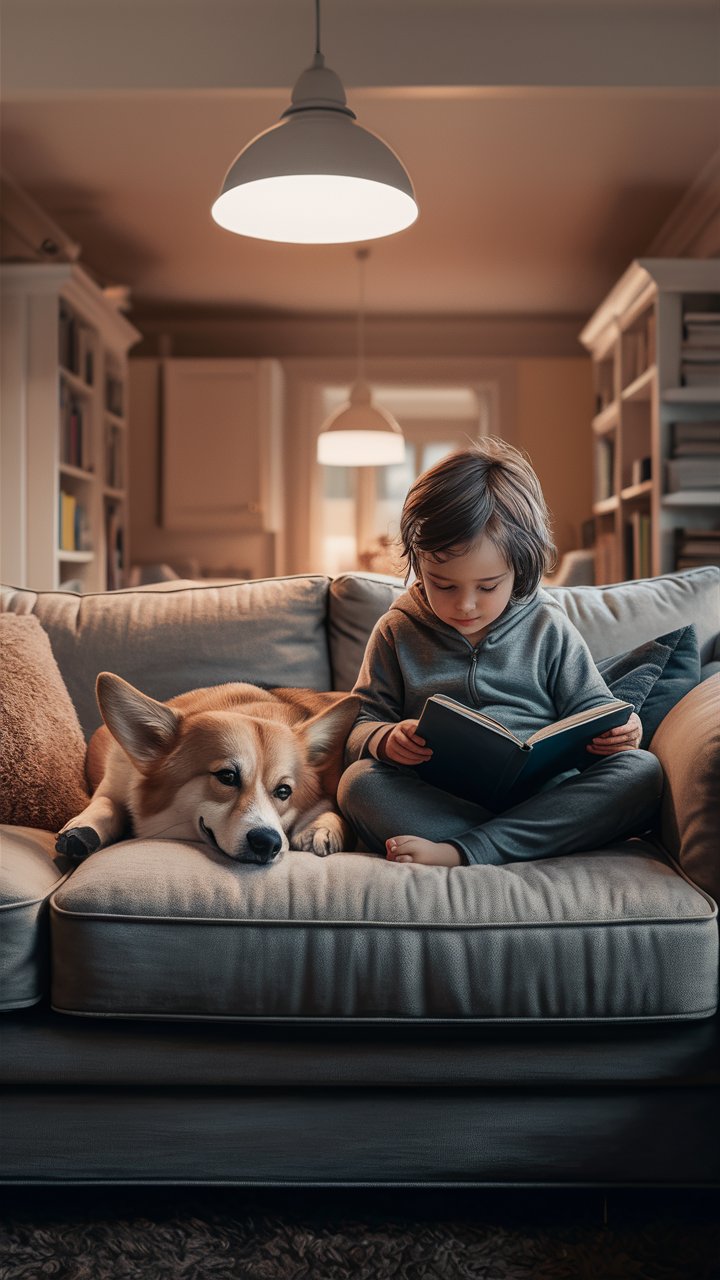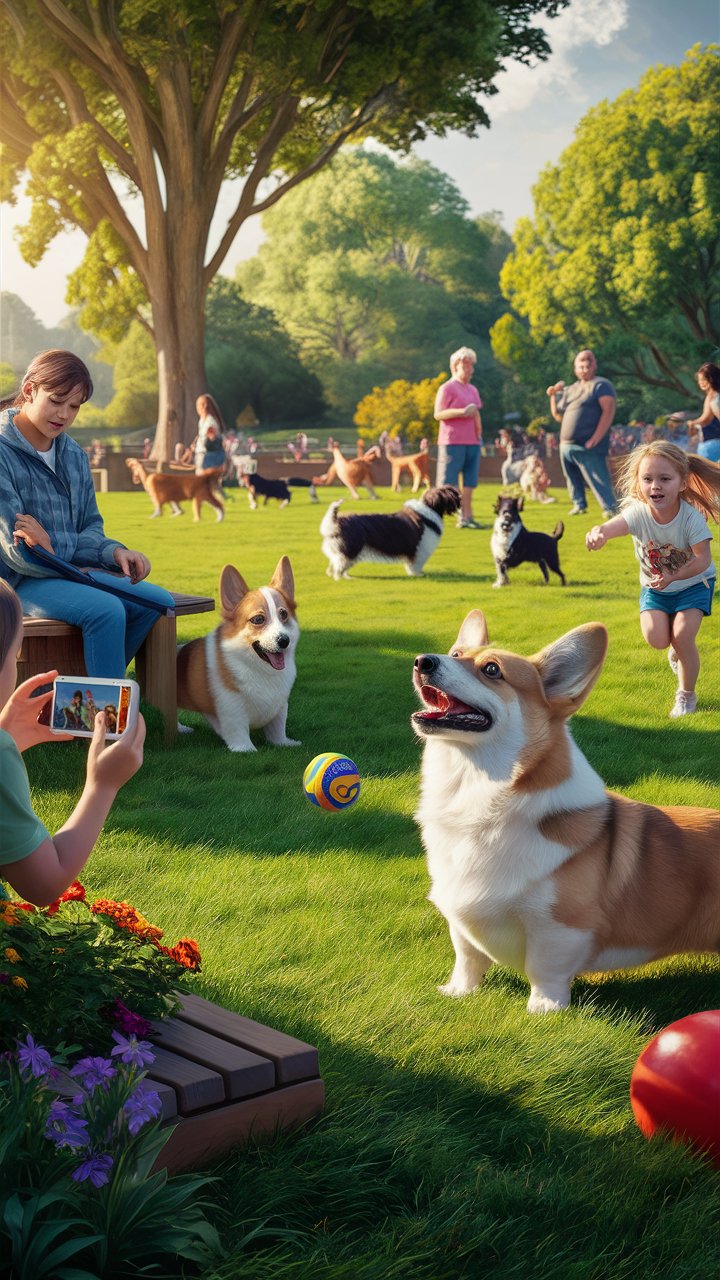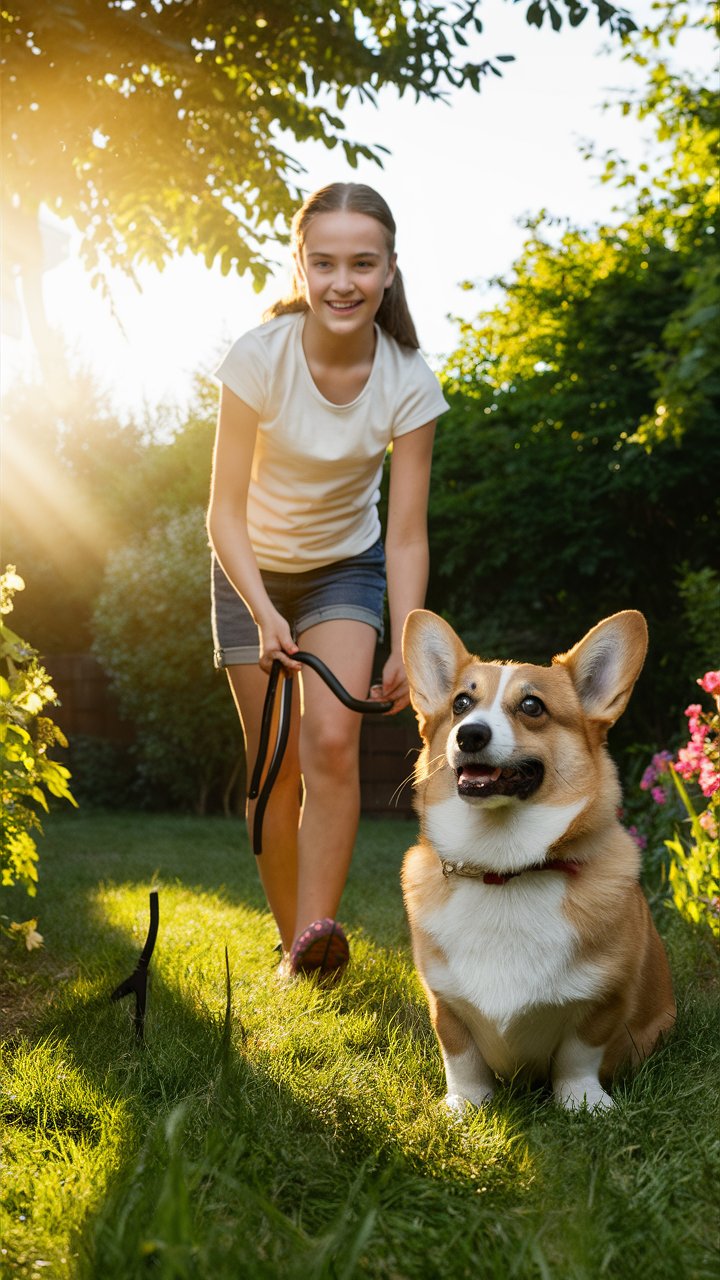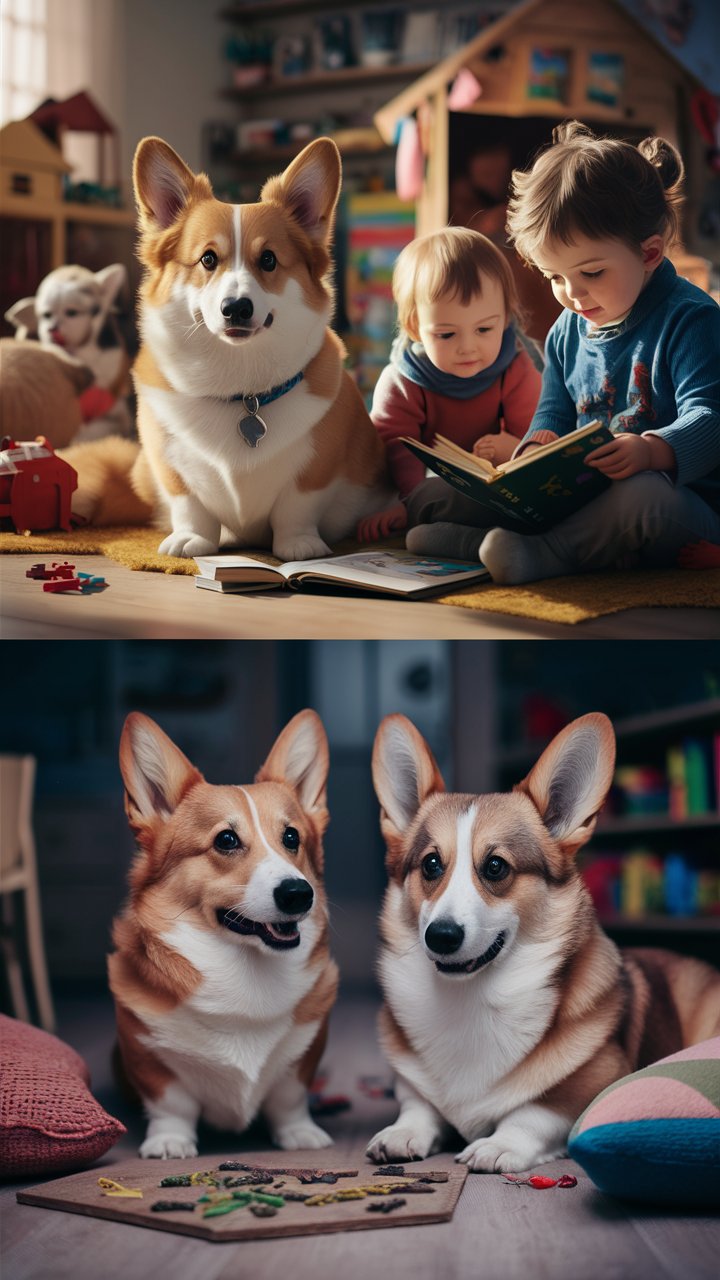Introduction
When considering the ideal dog breed for a family with kids, the Pembroke Welsh Corgi often emerges as a top choice. Known for their compact size and exuberant personality, Corgis are small dogs that pack a lot of heart and energy into their 30-pound frames. These intelligent dogs are not just cute; their mental stimulation needs and playful nature make them perfect for active households. However, it’s important to remember that their herding background may lead them to nip at the heels of running children, which calls for proper obedience training from a young age.
Corgis are good with kids because they are naturally affectionate and protective, yet prospective pet parents need to know that this good family dog requires consistent stimulation to remain happy. Whether you’re looking to adopt a dog like a Corgi, or you’re simply exploring which pets might be best around babies, understanding these traits can help ensure a harmonious home. With the right approach, Corgis can be an excellent addition, bringing joy and activity to any family dynamic.
Key Takeaways
- Corgis are affectionate and playful, making them ideal as family pets, especially in homes with children due to their protective nature.
- Proper obedience training and understanding their herding instincts are essential to prevent nipping and ensure a safe environment for kids.
- Early and consistent socialization is crucial for Corgis to adapt well to family settings and interact appropriately with children.
- Engaging Corgis in interactive play and puzzle toys can effectively channel their high energy and prevent mischievous behavior.
- Training that involves both the Corgi and children can enhance the bond, teaching kids responsibility and helping the dog respect them as part of the family.
- Differences between Pembroke Welsh Corgis and Cardigan Welsh Corgis in temperament and energy levels can influence their suitability for different family dynamics.
Temperament Traits: Why Corgis Make Great Family Pets
Corgis are known for their affectionate and intelligent nature, making them excellent family pets. Despite their small size, they have a big personality and are great with kids due to their playful and protective demeanor. However, their herding instincts can sometimes lead to nipping, especially around young children who are moving quickly. It’s important for parents to understand this behavior as part of the corgi’s nature and not aggression. Regular socialization and positive reinforcement training can help mitigate this, ensuring that corgis and kids have a harmonious relationship.
Balancing Playfulness and Discipline
Corgis possess a delightful mix of playfulness and discipline, which makes them adaptable to various family settings. Their high energy level and intelligent nature require consistent engagement through games and training that challenge their minds. Engaging your Corgi in puzzle toys and interactive play sessions can harness their energy positively and prevent any mischievous behavior, which is particularly important when kids are part of the household.
Understanding Herding Behavior in Family Settings
Corgis were originally bred as herding dogs, which can sometimes lead to nipping behaviors, especially around children. It’s crucial for families to understand that this behavior isn’t aggressive but a natural instinct. Teaching children how to interact safely and respectfully with their Corgi, and training the dog to respond to commands to stop, can significantly improve their interactions.
Socializing Your Corgi: Essential Tips for Families with Kids
Socialization is crucial for Corgis, especially if they are to be around children. Introducing your Corgi to a variety of people, sights, and sounds from a young age can help develop their confidence and reduce any potential anxiety around kids. Families should involve their Corgi in activities that foster interaction under supervision, like gentle play sessions or calm introductions to toddlers. Remember, Corgis are herding dogs by nature, so early and consistent socialization is key to helping them understand how to interact appropriately with children without feeling threatened or overwhelmed.
Effective Socialization Strategies for Corgis in Family Settings
Structured Playdates with Supervision: Organize play sessions with other children and dogs to teach your Corgi appropriate behavior and interaction, ensuring these are supervised to prevent any rough play that might stem from their herding instincts.
Routine Exposure to Family Activities: Include your Corgi in daily family activities such as meals, watching TV, or yard time. This continuous exposure helps them integrate seamlessly into the family dynamic and understand the routine behaviors of children.
Training Classes Designed for Families: Enroll your Corgi in training classes that focus on interaction with children and other pets. These classes are often designed to handle the unique challenges of dogs like Corgis who possess strong herding behaviors.
Visit Varied Environments Regularly: Take your Corgi to different settings like parks, outdoor markets, or hiking trails. This exposure reduces their anxiety in new situations and builds confidence around a variety of stimuli.
Consistent Commands and Signals: Use consistent commands to manage behaviors like nipping or barking. Teaching your children how to give these commands can also help in establishing their authority and ensuring the Corgi respects their cues.
The Role of Early Socialization
Early socialization plays a critical role in how well Corgis adapt to living with children. Introducing your Corgi to different environments, people, and other pets at a young age can help them become more acclimated and less stressed in various situations. This foundation allows them to be more stable and friendly, reducing the chances of anxiety-driven reactions around kids.
Activities to Enhance Social Skills
Participating in activities that involve both your Corgi and your kids can greatly enhance the dog’s social skills. Organized playdates, family outings, and visits to dog-friendly parks can provide opportunities for your Corgi to interact with children in a controlled, positive manner. These experiences are vital for building a strong, trusting relationship between your children and their Corgi.
Training Your Corgi: Building Bonds with Children
Effective training of a Corgi involves more than just teaching them basic commands; it includes fostering a bond between the dog and the family’s children. Training your Corgi using methods of positive reinforcement not only encourages good behavior but also enhances the dog’s trust and affection towards kids. Regular obedience training sessions are essential, particularly in teaching your Corgi not to nip or bark excessively. This not only ensures the safety of children but also helps the Corgi understand its role within the family dynamic as a playful, loving companion rather than a herder.
Training Techniques for Families
Incorporating family-oriented training techniques can help strengthen the bond between Corgis and kids. This includes teaching kids simple training tasks under adult supervision, which not only helps in training the dog but also empowers children by involving them in the caregiving process. It’s a fun way for kids to learn about responsibility and for Corgis to respect them as part of the pack.
Importance of Consistent Training Routines
Maintaining a consistent training routine is essential for Corgis, particularly in homes with children. Consistency helps the Corgi understand expected behaviors and boundaries within the home. Regular training sessions that involve commands and rewards can aid in developing a well-behaved family dog that is both a joy and a safe companion for children.
“Training your dog is not just about commands and tricks; it’s about creating emotional bonds and establishing a communication pathway that enhances mutual respect and understanding.” – Cesar Millan
Pembroke Welsh Corgi vs. Cardigan Welsh Corgi: Understanding Their Differences with Kids
While both the Pembroke Welsh Corgi and the Cardigan Welsh Corgi are excellent with families, subtle differences in temperament can affect their interaction with kids. The Pembroke tends to be more sociable and energetic, often making them a more engaging playmate for children. On the other hand, Cardigans are slightly larger and can be more reserved, yet they are still affectionate and protective of their family members. Understanding these nuances can help potential Corgi owners decide which breed might be a better fit for their home environment and children’s temperaments.
Activity Levels and Child Interaction
Comparing activity levels, Pembroke Welsh Corgis tend to have higher energy and are more playful, making them ideal for active children. Cardigan Welsh Corgis, while also energetic, may suit families with older or more reserved children due to their slightly calmer demeanor. Understanding these activity differences can help families choose a Corgi that best matches their children’s energy levels.
Physical and Behavioral Traits
The physical and behavioral traits of Pembroke and Cardigan Welsh Corgis can influence their interaction with children. Pembrokes are generally smaller and might be less intimidating for young kids, whereas Cardigans, with their larger size and more laid-back nature, might be better suited for families looking for a less boisterous pet. Both breeds, however, are known for their loyalty and protective nature, making them excellent family dogs.
[lasso rel=”amazon-5″ id=”5270″]
Conclusion
Choosing the right dog breed for a family with young members involves considering many factors, but the Pembroke Welsh Corgi stands out as a good choice. These small dogs, known for their spirited nature and weighing about 30 pounds, are energetic dogs that blend well in dynamic family environments. Their need for mental stimulation and natural inclination to protect make them not just pets, but family members, enhancing the home atmosphere with joy and activity. Proper obedience and socialization training are key to harmonizing their herding instincts with family life.
Families pondering whether Corgis are good with kids will find these affectionate companions excel when their environment includes consistent training and plenty of exercise. Corgis are great because they thrive on interaction and are particularly good family dogs. Adopting a Corgi means committing to an active engagement that fosters both the physical and emotional well-being of the dog, ensuring that they grow as integrated and well-adjusted family members.




